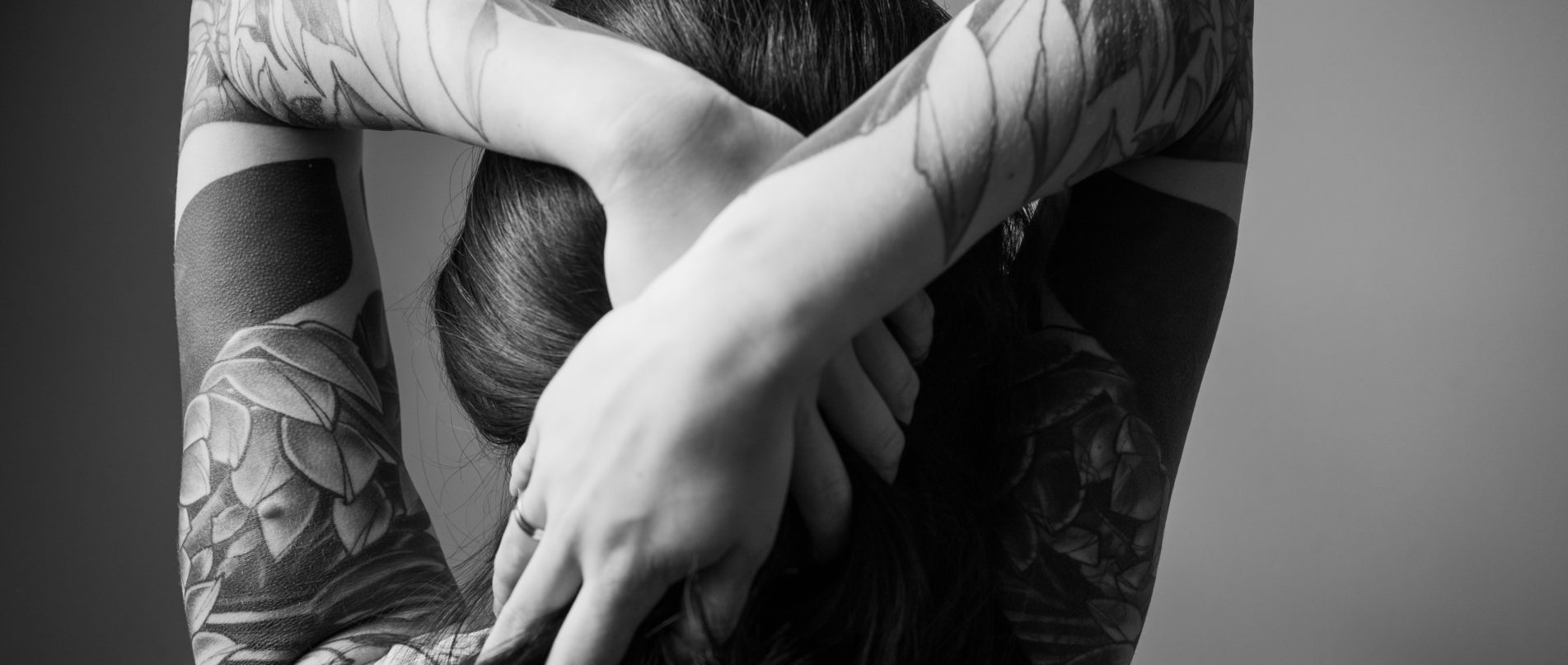
Prompt Images
Isn’t it interesting that it’s always your boomer uncle or the “she’s old enough where she’s set in her ways so we don’t really say anything about her casual racism” grandma who decides to give you their unasked for opinion about your tattoos?
“Why are you wasting your money on that shit?”
“You’ll never get a job with tattoos.”
“They will look horrible as you get older.”
“You know, those are permanent.”
No shit, Uncle Rod and Memaw. You mean to tell me the result of hours of needles piercing my skin won’t wash away after a few intense scrubs in the shower?
It’s intriguing to me that family members have opinions about the permanence of something visible we choose to display on ourselves while disregarding all the unseen trauma, feelings, and scars they’ve forced upon us against our will.
It’s like we carry the baggage of the generations before us like unseen ink, but it all becomes visible when you get close enough to look and see.
Thank you Aunt Tammy for your critical discourse on how people with tattoos are white trash, and you just don’t understand why anyone would get something like that forever on their body.
Well, TAMMY, I don’t understand why you would saddle the entire family with your financial and emotional burdens that were a direct result of all your poor choices. Yet here we are. And people can see that shit on me, and it’s a lot more permanent, and a lot less pretty than the willow tree on my arm you have so many opinions about.
Or the boss who tells you to cover up your ink while at work. So, like you cover up toxic management behavior, racism, and employee abuse?!
In some ways, tattoos help us heal from trauma.
We get quotes etched on our skin to give our comfort. We ask for cartoon characters from our childhood because it reminds us of a time we were genuinely happy. And sometimes there isn’t rhyme or reason; we stop in a random tattoo shop on a rainy day because we just want cool as fuck art on our bodies.
We don’t choose generational trauma.
I didn’t wake up one day and decide I wanted a permanent reminder of my family’s history of addiction. No one asks for self-image issues or crippling familial guilt or the variety of issues that creep just under the surface, but are visible in our day to day lives, relationships, and choices.
Now imagine if everything our families gave us, without our permission, were emblazoned all over our body in permanent ink. I’m sure relatives would have a lot less unsolicited opinions about those marks. Especially if the “alcoholism” etched on your hand, the “poor relationship with money” across your forehead, or the “religion-based trauma” on your upper thigh is there because they put it there.
So let us celebrate the marks we choose to carry: the ones that express who we have become and our resilience, rather than the ones forced upon us.
But the unique and wonderful thing about the marks we have but don’t see can always be repurposed and changed into something beautiful. We often choose to commemorate exceptional life events by memorializing them on our skin. Whether it be deaths, race finishes, or just our favorite cartoon character, making the choice for these permanent etchings allows us to change how we tell our story. Sometimes, we don’t even need to use words.
But those life tattoos – the marks people can’t visibly see. We can turn them into something as beautiful as well. It’s when a child of an abusive household chooses to break the pattern of abuse with their own children. When an adult child chooses to break the cycles of enablement that exist in a household full of addiction. It’s about choosing to say “no” to things when the people who were meant to protect you always forced you to say “yes,” even though it felt wrong.
We have an opportunity to tell our stories – as dark and twisted and painful as they may be, and weave them into something beautiful, colorful, and exciting.
Something we don’t shy away from, but rather something we shout from the rooftops because it made us who we are today. And before we know it, we are creating a chain of beautiful, colorful people who don’t feel kept down by the darkness, but empowered by the beautiful brightness of their story and the light it shines upon the world.
Every tattoo tells a story—seen or unseen. Having a quote commemorating a lost loved one may make it easier to open up when someone asks, “What’s the story about that?” If you’re carrying the grief and loss inside, it doesn’t mean you don’t have that story to tell. By showing our scars and our ink, we create a space where we acknowledge what we’ve been through, what we’re going through, and how we’ve taken control of our bodies and our stories.



